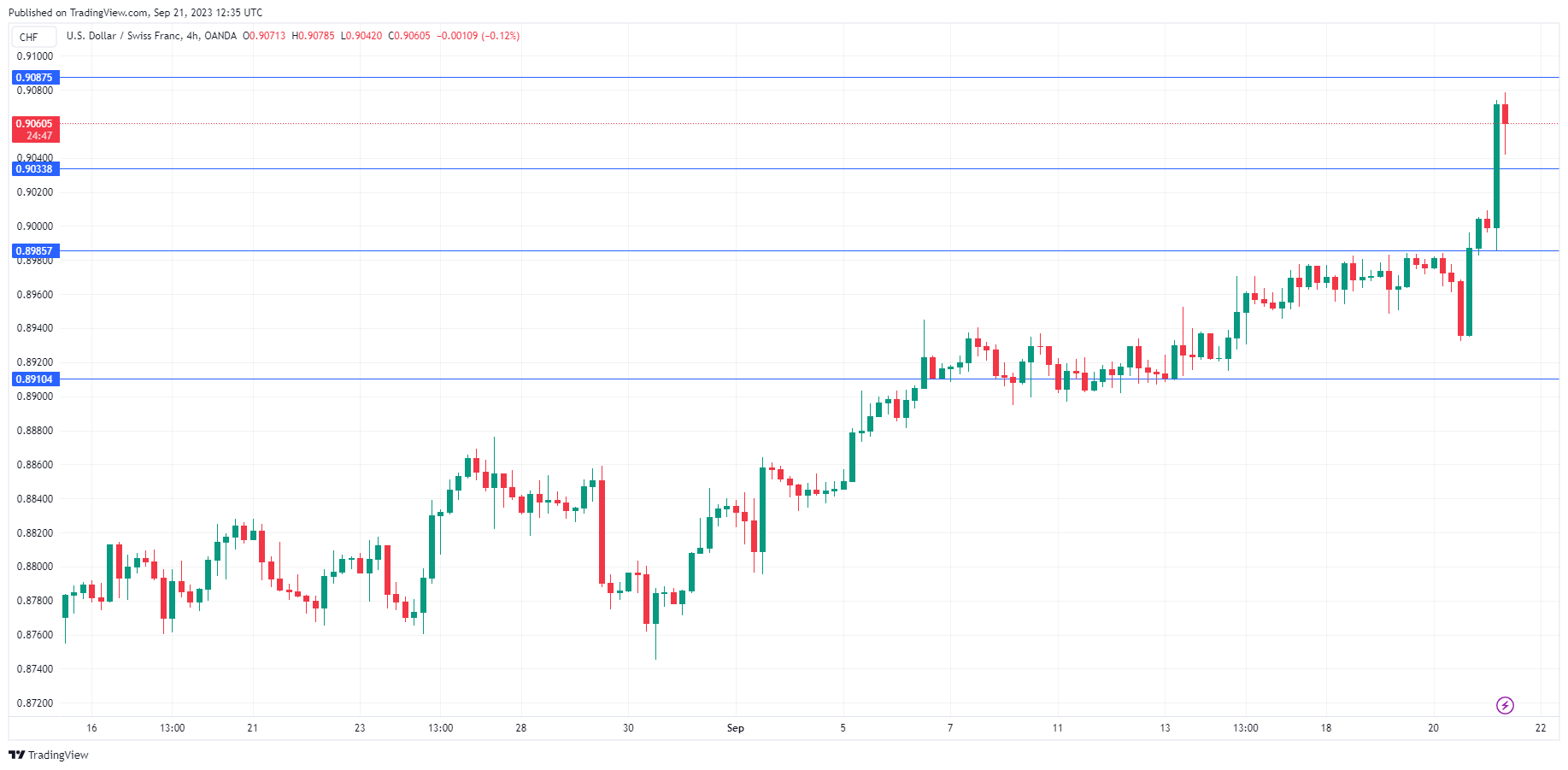- SNB surprises and holds interest rates
- Fed delivers a ‘hawkish hold’
- USD/CHF pushed above resistance at 0.9033 and is putting pressure on resistance at 0.9087
- 0.8985 and 0.8910 levels are providing support
The Swiss franc has fallen sharply on Thursday. In the European session, USD/CHF is trading at 0.9060, up 0.80%. Earlier, USD/CHF hit a high of 0.9078, its highest level since June 13th.
The driver behind the Swiss franc’s downturn was the Swiss National Bank’s decision to hold rates at 1.75%, after five consecutive rate hikes. This surprised the markets which had expected a quarter-point increase. The SNB policy assessment noted that significant tightening had curbed inflation, but that further tightening could not be ruled out.
Have interest rates peaked in Switzerland? The answer appears to be yes unless inflation rises unexpectedly. Inflation was unchanged in August at 1.6%, within the SNB’s target of 0%-2%. The assessment noted that Swiss growth has been weak and there is a risk that the global economic slowdown will worsen.
The assessment also noted the SNB is “willing to be active in the foreign exchange market as necessary”. The SNB hasn’t been shy about intervention in order to stabilize the exchange rate, which has helped to control external inflationary pressures. At the same time, the central bank doesn’t want the Swiss franc to appreciate to such an extent that it weighs on the crucial export sector.
Fed Holds Rates as Expected
The Federal Reserve paused rates for the second time in three months, maintaining the benchmark rate at 5.5%. The decision was a ‘hawkish pause’, as the Fed signaled that it would hold rates higher for longer.
The dot plot indicated that the Fed expects to raise rates once more before the end of the year and is projecting trimming rates by 50 basis points in 2024. In June, the dot plot indicated one more hike before the year’s end and rate cuts of 100 basis points. The Fed also revised its growth forecast for 2023 to 2.1%, up from 1% in June, indicating that the Fed is confident it can guide the economy to a soft landing and avoid a recession.
